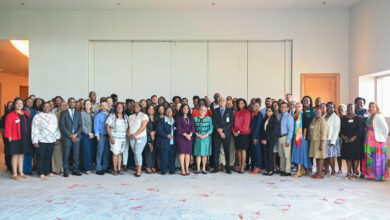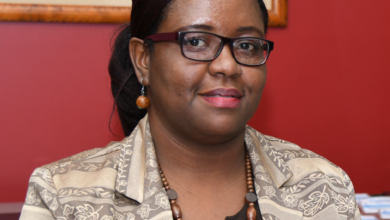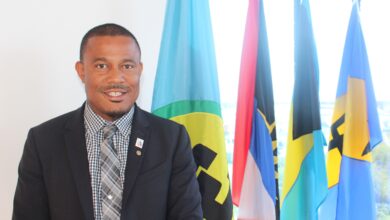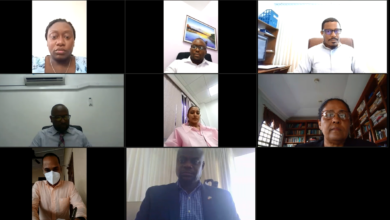(CARICOM Secretariat, Turkeyen, Greater Georgetown, Guyana) The Sixth Meeting of the Executive Board of the Caribbean Community (CARICOM) – coordinated Pan Caribbean Partnership Against HIV/AIDS (PANCAP) began yesterday 20 April 2006 in Trinidad and Tobago.
In opening remarks to the two-day meeting of the Regional Coordinating Mechanism, as the Board is called, CARICOM’s Assistant Secretary-General for Human and Social Development and outgoing Chairman of the Board, Dr. Edward Greene, indicated that “no one-off briefing or encounter with PANCAP could fully capture the nature of this network, its evolution, challenges, and commitment of the cross section of Partners that have sustained the network over the past five years.”
Dr. Greene, in welcoming the incoming Chairman, the Hon. Sen. Bernard Nottage, Minister of Health of The Bahamas, alluded to some concerns that faced the Partnership. These included slow implementation rates of HIV/AIDS projects both regionally and nationally, the need to ensure greater impact of programmes at the country level, and harmonisation to optimize use of resources.
Dr. Greene charged the new body to fulfill its role in managing and strengthening the high level of leadership of the Board.
Dr. Nottage in accepting the Chairmanship of the RCM urged that major emphasis be placed on refining the Caribbean Regional Strategic Framework (CRSF) to ensure that the accelerated response to the HIV/AIDS epidemic by PANCAP could be more effective and in particular that it impacted at the country level. He also highlighted the issue of harmonisation as critical to the new directions for the Partnership and the sustainability of its programmes.
Major agenda items of this sixth meeting include, the Universal Access to Prevention, Care and Treatment process, revision of the CRSF, proposal for harmonising the Region’s resources and further revision of the structure of the RCM.
PANCAP, with current membership of approximately seventy-two comprising governments, non-governmental organisations, the private sector, faith-based organisations, donor agencies and people living with HIV/AIDS, was established in 2001 with the overarching goal of curtailing the spread of HIV/AIDS and reducing the impact of HIV on human suffering.
The RCM is expected to give direction to the functioning of the network, including to monitor and evaluate the activities of the Partnership.






